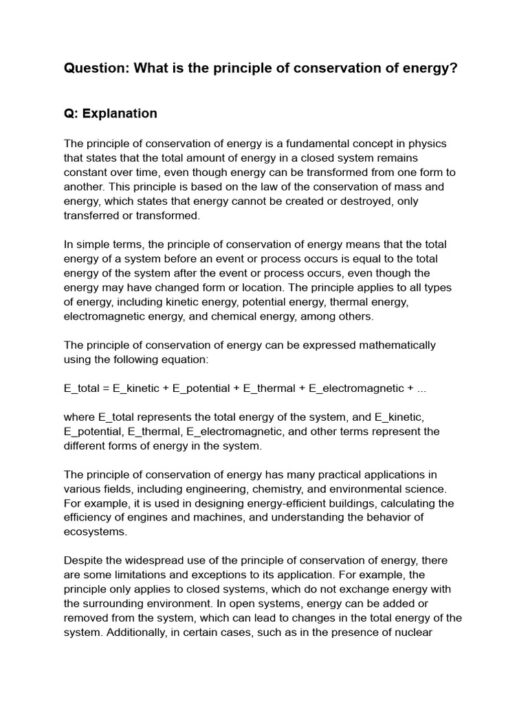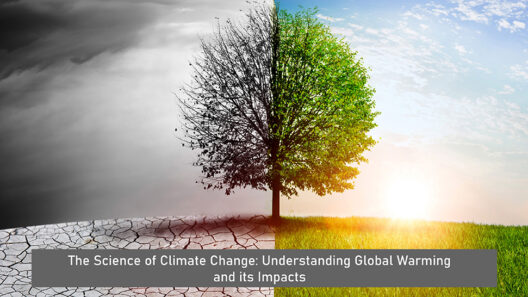Global warming has emerged as one of the most pressing dilemmas of our time, capturing the attention of scientists, policymakers, and concerned citizens alike. The observable rise in global temperatures is not merely an environmental issue; it is an intricate tapestry interwoven with economic, social, and ethical threads. The urgent query lingers: How can we, as a collective society, combat this escalating crisis? The answer lies in a multifaceted approach encompassing innovative solutions, collaborative efforts, and a shift in our collective consciousness.
The Necessity of Renewable Energy: Shifting the Paradigm
One of the foremost strategies to address global warming is transitioning from fossil fuels to renewable energy sources. The combustion of fossil fuels for electricity, transportation, and industry is a principal contributor to greenhouse gas emissions. By harnessing the inexhaustible power of the sun, wind, and water, we can significantly reduce our carbon footprint.
Solar power stands out as a particularly viable alternative. Advances in photovoltaic technology have made solar panels more efficient and accessible than ever. From residential rooftops to vast solar farms, the potential to generate clean energy is immense. Wind energy, too, continues to expand, with colossal turbines capturing the kinetic energy from natural atmospheric movements. Hydropower, while requiring careful ecological considerations, remains a steadfast contributor to renewable energy portfolios.
The transition to these energies is not merely a mechanical shift; it demands a cultural evolution. The integration of renewable energy into urban planning and infrastructure necessitates comprehensive governmental policies and incentives. Moreover, fostering public awareness and acceptance is crucial. Governments should champion educational campaigns that highlight the benefits of renewable energy, not just for the planet, but also for economic revitalization through job creation in the green technology sector.
Innovative Transportation: The Road Ahead
Transportation represents another significant challenge in the fight against global warming, as it is responsible for approximately 14% of all global greenhouse gas emissions. The shift toward sustainable transportation is vital. Electric vehicles (EVs) exemplify this transformation. With advancements in battery technology, EVs are becoming more efficient and affordable. The installation of widespread charging infrastructure is paramount to their viability.
Furthermore, public transportation systems need a paradigm shift toward electrification and mass accessibility. Cities can lead the charge by investing in efficient, low-carbon public transit systems that not only alleviate traffic congestion but also minimize emissions. Encouraging cycling and walking through the development of safe, interconnected pathways promotes a healthier urban environment while reducing carbon output.
However, the change does not solely lie in technology. A shift in societal behavior is equally critical. Encouraging carpooling, using public transport, or even engaging in remote work can significantly diminish the carbon footprint of daily commuting. Collectively altering our mindset towards mobility can engender substantial environmental benefits.
Sustainable Agriculture: Cultivating Change
A lesser-discussed but equally significant aspect of global warming mitigation is our approach to agriculture. Traditional agricultural practices contribute to climate change through deforestation, soil degradation, and methane emissions from livestock. Therefore, adopting sustainable agricultural techniques is essential.
Permaculture and regenerative farming are gaining recognition for their ability to replenish soil health and sequester carbon. By focusing on biodiversity, these methods not only enhance productivity but also restore ecosystems. Employing precision agriculture, where technology is used to optimize farming processes, can lead to reduced emissions and lower resource consumption.
In addition, reducing food waste is another critical component. The Food and Agriculture Organization estimates that about one-third of food produced globally is wasted, contributing to significant emissions. By enhancing supply chain efficiency and increasing public awareness about food preservation, a substantial decrease in emissions can be realized.
Policy and Governance: The Framework of Change
Initiatives to combat global warming cannot thrive in a vacuum; they require robust policy frameworks and international cooperation. The Paris Agreement marked a significant milestone in fostering global collaboration to limit temperature rise to well below 2 degrees Celsius. However, maintained commitment from all nations is essential.
Governments can enhance their climate resilience strategies by establishing stringent regulations on emissions, incentivizing renewable energy adoption, and investing in climate research. Moreover, local governments play a pivotal role in enacting change through community-based initiatives that promote awareness and action at grassroots levels.
Investment in climate adaptation strategies is equally vital. Communities are already feeling the impacts of climate change, and fortifying infrastructure to withstand extreme weather events is essential for preserving human life and economic stability. From enhancing flood defenses to developing drought-resistant crops, proactivity in governance can mitigate the adverse effects of climate change.
The Collective Responsibility: A Call to Action
While individual actions may seem inconsequential in the grand scheme, the collective effort of millions can lead to monumental change. Each person has the power to make sustainable choices, be it reducing energy consumption, supporting local businesses, or advocating for environmentally friendly practices. Educating oneself about the science of climate change and the systemic issues at play fosters a deeper understanding and commitment to mitigating its effects.
In summation, overcoming global warming necessitates a synergistic approach that embraces renewable energy, innovative transportation, sustainable agriculture, and robust policy frameworks. It calls for an awakening of our collective consciousness, encouraging us to see ourselves as stewards of the planet. Only through collaborative action can we pave the way for a sustainable and thriving future for generations to come.







